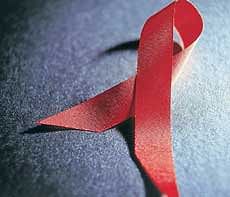Mysore's agents of change

That the most dangerous snake venom when used in moderation, can turn into a saviour of lives is a known fact. Similarly, can a sex worker - who is considered to be the high risk carrier of HIV infection - play a vital role in curbing the menace? If you meet members of Ashodaya, a sex workers’ collective in Mysore, you would be convinced they do! Not only this, the members here rehabilitate minor sex workers too. With about 4,500–5,000 sex workers concentrated in Mysore alone, the chances of the city topping the charts among cities running the risk of contracting HIV/AIDS is high.
Working towards reducing the risk, these sex workers have played a major role in bringing down the rate of infection in Mysore city from one per cent to 0.8 per cent in 2008. They were instrumental in reducing it further to a mere 0.3 per cent in 2009, as mentioned by District AIDS Prevention and Control Unit (DAPCU).
The data, available with both the district hospital and Karnataka State AIDS Prevention Society (KSAPS) among other government departments, acknowledges the efforts put in by this high risk group in curbing the infection. The figure is calculated against the average population and the ratio at which the population has been increasing, as against spreading of AIDS (as announced by international monitoring agencies).
How did the members succeed in spreading awareness about safe sex? Says Sreeram, Director of Ashodaya, “Since the establishment of the collective in 2005, we have constantly made efforts to convince sex workers that we are here to help them and not interfere in their profession.” This thought by the organisation helped them gain confidence of the community and translated into confidence building measures and sessions on personal hygiene.
Monthly clinics
It was only when monthly clinics started functioning and medicines were given away for affected persons along with directing them to ART (Antiretroviral therapy) centres that sex workers began to cooperate. Gradually, classes on condom awareness were initiated and the importance of including their partners in the process was stressed upon.
In fact, it was the male sex workers, who took the lead. “Slowly, women too are understanding the significance protection. The only problem being, how will they start to insist?” ask Sreeram and Sushena of Ashodaya.
Bhagyamma, a sex worker associated with Ashodaya feels that many women sex workers, including a few infected with HIV, were reluctant to use condoms. “Some women believed that it would affect their business, resulting in lesser earnings. This ‘superstition’ actually derailed our campaign for quite some time,” she explains. She also adds that the police too started booking sex workers on charges of solicitation whenever they found them by the roadside, especially with condoms in their bags.
“We always face hardships and this problem was especially difficult also because we didn’t have money to bail out our peers,” adds Pratima, another sex worker. The issue was discussed and eventually, peer groups were formed. “Whenever someone was in need of help, we traced members operating in that area to deliver it to them. To add to it, workers took their partners to familiar places so that their negotiating powers were high,” says Sreeram.
Bhagyalakshmi, who herself suffers from AIDS, has been in the profession for many years. She explains that it took a lot of interpersonal counselling to get men to agree to their terms. “We couldn’t have scared our clients about AIDS or other STDs since our lives depend on them. Our motto was ‘no condom, no services’. Today, thanks to Ashodaya, many men are untouched by the disease,” she says.
Today, Ashodaya members not only spread AIDS awareness among their clientele, but also hold regular workshops on the issue for the police department. As a mark of changing times, recently, members of sex workers’ group — Community for Advocacy and Reforms (CFAR), under the auspices of KSAPS, came together to organise an interaction with members of the media to spread AIDS awareness.
Admitting that sex workers played a better role in creating awareness, R Jannu, Director of KSAPS said, “The profession of sex workers is dependant on the need created by the society. It is commendable that they have joined hands to reduce the deadly infection by means of participation and counseling.”
WHAT DO THE NUMBERS TELL?
2004–2007: The prevalence rate was one per cent with 12,753 members undergoing the test and 1,694 tested positive.
2008: The rate of infection reduced to 0.8 per cent with 2,715 people confirmed with having contracted the virus among 24,717 people who underwent the test.
2009: A mere 0.3 per cent were tested for HIV/AIDS with 2,671 people being tested positive out of 33,405 people who underwent tests at district hospital.
Deccan Herald is on WhatsApp Channels| Join now for Breaking News & Editor's Picks